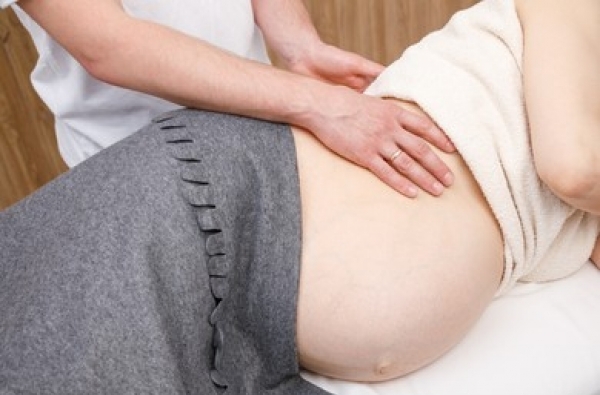Modern women are more capable and independent than women in prior eras. They have redefined gender roles, pushed for increased autonomy and authority, and fully realized their potential. However, their health is frequently neglected as they fight for equality and carve out a place for themselves. The benefits of physical therapy for some of the leading health issues women face are listed below.
Women are caregivers by nature, and they frequently neglect to take care of themselves to take care of a loved one. This negligence could result in several health problems as women age. Preventive healthcare is superior to taking drugs after receiving a health issue diagnosis. Many different therapy options exist, such as Ayurveda, allopathic medicine, and others. One of these medical disciplines, physiotherapy, can help you avoid various health issues when practiced carefully.
A brief evaluation and structured fitness program by a physiotherapist of the best women’s care hospital is frequently enough to prevent these health difficulties in women across the age span, from youthful athletes to pregnant mothers to elderly women going through menopause.
Women’s health physiotherapy refers to a therapeutic method that is non-surgical and specially designed for the various health problems that affect women. During therapy, specially designed equipment and exercises help patients resume regular physical activity.
How Does it Work?
Your evaluation and treatment will be based on your current condition. Usually, it starts with compiling a complete and confidential history. Even though it could be challenging to broach such sensitive topics, it is essential to understand when your symptoms first appeared and how they affected your daily life to decide how to proceed with your treatment. Starting with a check of your lumbar spine, pelvis, and abdominal muscles, the physical examination is likely to proceed. Completing this critical part of your test may assess your pelvic floor muscles’ tone, strength, and control.
The pelvic floor muscles and connective tissue will be examined using finger probing to check for pelvic organ prolapse, indications of damage or scarring, muscular tone, sensation, tenderness, and neural sensitivity. The pelvic floor muscle’s power and stamina will then be assessed. It’s critical to determine whether the deep, superficial, and left and right pelvic floor muscles are working together. If not, ascertain why. You will discuss the assessment’s findings with the doctor, and the treatment plan will be determined according to the results and your symptoms.
Here are some benefits of physiotherapy for leading health problems faced by women.
Premenstrual Syndrome
A physiotherapist evaluates the physical effects PMS puts on your body and the risk factors that can affect and intensify them before offering a range of management choices and recommendations. Kinesiotaping, electrotherapy, stimulation of relaxation points, and manual therapy are all available treatments for relieving tension and related symptoms, such as headaches and constipation. A vital element of the therapy is teaching relaxation techniques and providing advice on self-management and self-care.
Endometriosis
Patients with endometriosis may benefit greatly from physical therapy modalities before and after laparoscopic surgery, especially if they have musculoskeletal problems. Physical therapy treatments that are beneficial include manual myofascial therapy, stretches and flexibility exercises, trigger point release, spinal mobilizations, nerve glides, relaxation techniques, pelvic floor muscle lengthening, and behavioral modifications.

Polycystic Ovary Syndrome
Physiotherapists can provide an exercise program specially customized to help with weight loss gained because of the storage of estrogen in adipose tissue, reducing insulin levels, and changing diets to consume fewer carbohydrates.
Heart Diseases
Physical therapy can help to slow the progression of heart disease and decrease its adverse effects by creating a treatment plan that addresses all of the illness’s contributing factors. This may include advice on how to stop smoking and a workout plan for managing your weight and lowering your cholesterol. Cardiac rehabilitation programs are provided for those who have had a heart attack or have severe heart disease.
Osteoporosis
Osteoporosis is more common in women who have just entered menopause. Physical therapy can halt further bone loss and reduce the risk of fractures. Bone-strengthening exercises are essential for maintaining the health of osteoporotic bones. Fitness programs often include weight-bearing exercises, flexibility exercises, posture and balance drills, and more.
Obesity
Physiotherapy can help manage and prevent obesity. Obesity-based movement restrictions make it difficult to get into physical activities, and exercise and movement are the cornerstones of physiotherapy practice. An obese patient’s treatment plan may include a personalized prescription, lifestyle advice, monitoring, and progression of the right amount of physical activity to increase muscle strength, flexibility, endurance, and energy output to maintain and hasten weight loss under control and safe conditions.
Also check out Exercise Is Important During Pregnancy & Here’s Why
Depression
Exercise has been proven beneficial for people with mild to severe mood disorders, notably anxiety and depression. When you exercise aerobically, your body produces endorphins, improving your mood and aiding with pain. These endorphins also can lower cortisol levels, which are known to be greater in sad individuals. Exercise also increases serotonin’s sensitivity, which allows more serotonin to linger in the neuronal synapse, similarly to how antidepressants work. For various patient types, it has been demonstrated that both aerobic and resistive exercise during pregnancy is helpful.
Urinary Incontinence
Unable to control urine flow, overactive bladder is another word for urinary incontinence. The pelvic floor muscles weaken due to trauma, pregnancy, surgery, or inactivity, which causes urine leakage. Physiotherapy sessions cover dietary adjustments to reduce bladder irritation, pelvic floor strengthening exercises, and methods to lessen pee urgency and frequency.
Also checkout the Exercises to Avoid During Pregnancy
Conclusion
You need the proper assessment to avoid the onset of any health problem. Ankura hospital is a super-specialty hospital with state-of-the-art features and machines and is also known as the best women health care hospital. Physiotherapy is very beneficial to women’s health.
Do not think twice about asking the physiotherapists of Ankura Hospital about what’s best for you.

